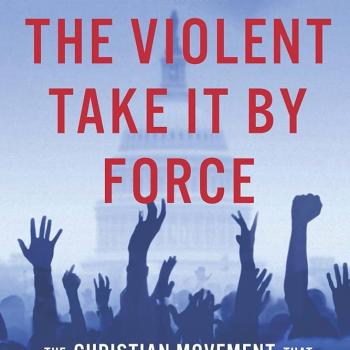The news has been full of reports this week about how many former special forces soldiers go on to work for private security contractors.
Some also choose to work in the relatively tranquil and far safer field of private security here in the U.S. I spent a year writing corporate training materials for one such company. They supply unarmed security officers to office buildings and shopping malls. We offered access control and loss prevention — not mercenaries.
About once a month they'd send me to some hotel for four-day training sessions with our "account managers." A lot of these folks were former military or former law enforcement. We'd spend all day in a conference room talking about human resource regulations, cost-management and fire prevention, then we'd all end up in a bar that evening and I would listen as the guys would swap stories.
The only ones without stories were the former special forces guys. They'd chime in a bit with stories from training — stuff about how scary it is to parachute from a helicopter or how much your knees hurt from a low-altitude jump — but otherwise, they didn't talk much. If one of the other guys was talking about Panama, say, they might just say, "Yeah, I was there." But that'd be it.
The one exception was a trip to Florida, shortly after the fall of the Taliban in Afghanistan. The hotel bar had a giant screen TV showing CNN. A report came on with that green, night-vision video showing U.S. Army troops breaking down doors and searching houses in some Afghan village.
This report got my special forces drinking companion to start talking. He was livid. You can't just go in to some village and start kicking in doors, he said. They've got dogs with them for chrissake! They don't speak the language. They haven't got a freaking clue about the culture of the people they're dealing with. They're never going to learn anything this way. (There was a lot more profanity, but that was the gist.)
"You sound like Dr. Escobar," I told him, "the missiology prof where I went to seminary." He really did (except for the profanity).
He seemed to like this. A lot of missionaries, he said, were like "those idiots" from the CNN report. But the good ones do what we do, he said. And he went on to talk about the necessity of learning and respecting the language and culture of the people you're dealing with and how the best missionaries, like the best special forces, recognize this.
Of course, he noted, the missionaries probably aren't there to capture or kill somebody, so that's a big difference.
That's a huge difference. Which is part of why a cozy relationship with the military can undermine both the mission and the safety of missionaries.
Yet I'm still fascinated by the similarities my SF friend discussed. Somewhere in all that there's probably a good article for the International Bulletin of Missionary Research.















